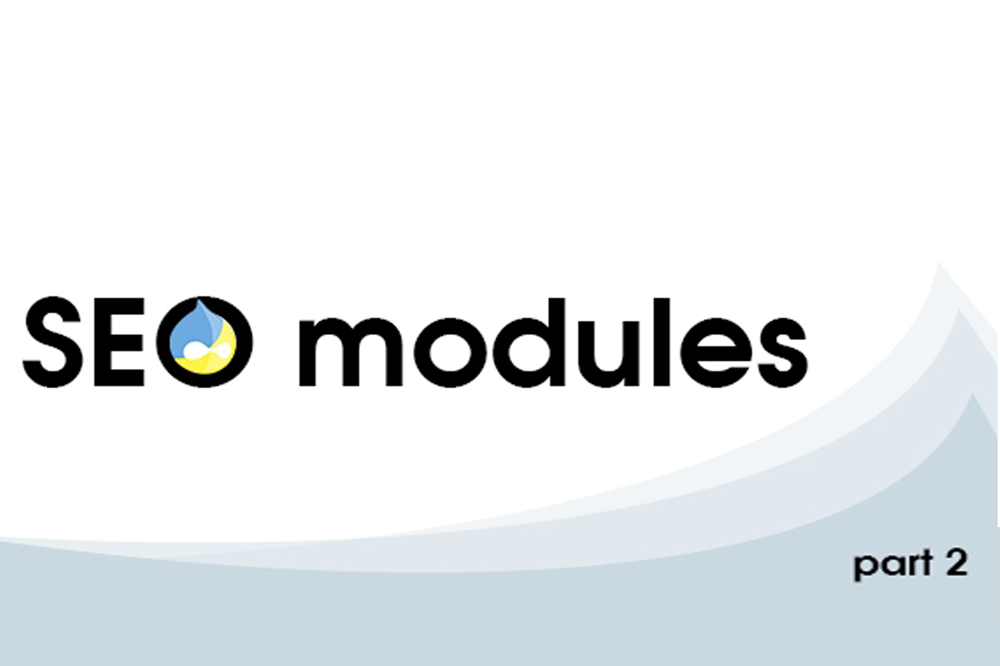It is very useful to use SEO modules in web development. So if you want your Drupal-site to fit all SEO demands, there are hundreds of out-of-box modules on drupal.org. Previously, we have described the most important SEO modules. This time we will provide you with the list of modules one can hardly call ‘must have’. However, your website will gain additional benefits if using them in a right way.
So let’s review these modules.
Page Title is a good module for free-running generation of very important ‘Title’ meta-tag. We talked to Jay Soriano, he runs a SEO Company out of Las Vegas called SorianoMedia, and he mentioned that one of the biggest mistakes webmasters make is with the page title, and it's not just because they're targeting the wrong keywords, but because a lot of webmasters have duplicate content, and duplicate page titles. With the help of pattern settings, it is possible to create unique and relevant titles for each website page. In order to avoid the duplication of page titles and pagination and as a result to increase the number of pages which will be indexed, we insert «[current-page:page-title]» in field Default, and «page № [current-page:page-number]» in Page Suffix page.
So in Views with pagination, we will avoid the duplication.
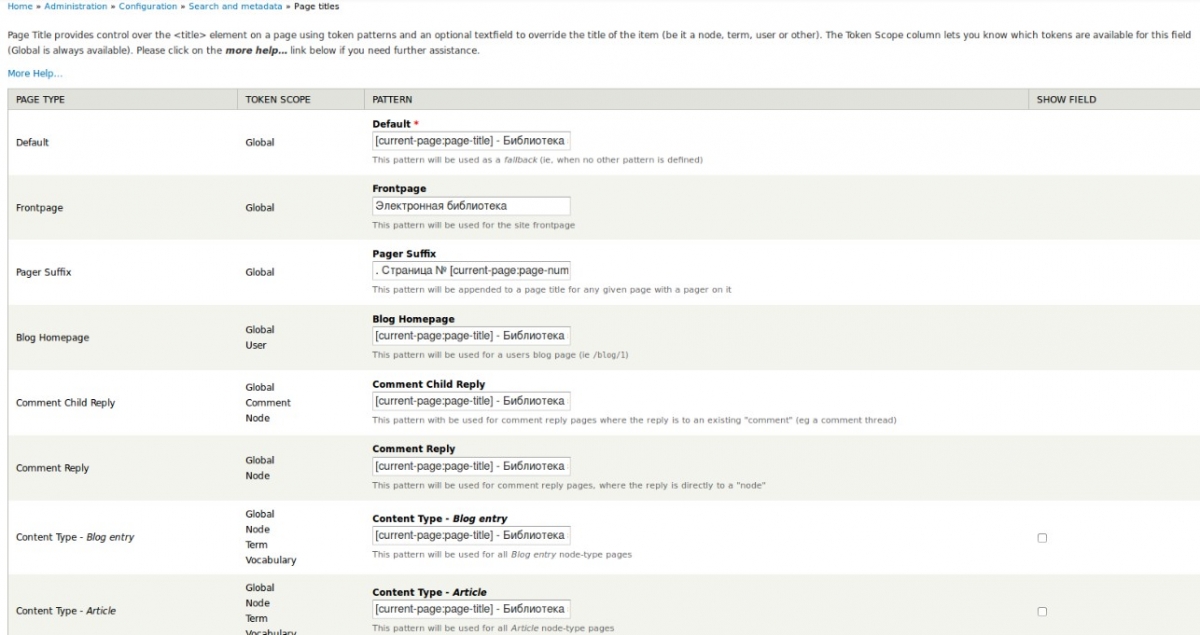
Media Sitemap — this module generates image_sitemap.xml. This sitemap will help your images to be in top of the search by relevant requests. You can also use Google Image Sitemap, but it generates several maps with pics depending on content type - which is not good for large projects.
Site verification is a useful module for your website registration in search engines. This registration will provide you and search engine cooperation: tune in targeting of search, remove mistakes, etc.
Word Link is a useful module for the internal linking. You define content types and appropriate words, and the module automatically puts links into the needed words.
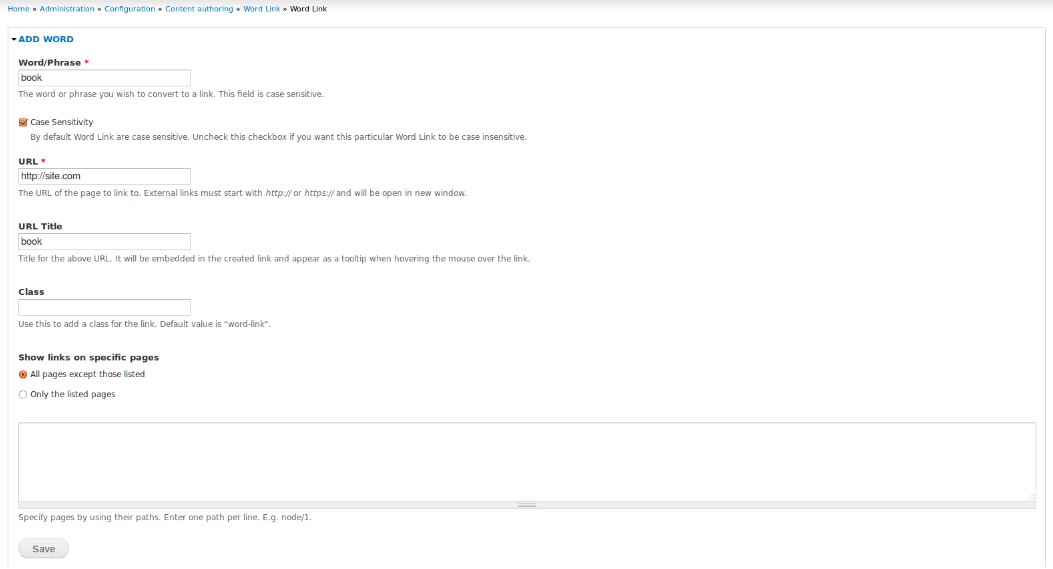
The page-recipient is indexed better this way, gets static weight and is ranked better in search engines by keywords, which have been set in linking.
Microdata — module which provides the support of microdata from Schema.org in your markup. Micro markup helps search engines to understand which type of information is on the website. With the help of micro markup, the website presentation in the process of search and data transmitting to SE services are getting better. You will need some knowledge about Schema.org, especially a possible microdata dictionary. After module installation, it is necessary to put changes in content type settings. Let’s take News content type as an example. When looking at News, it is necessary to define the address of element type from Schema.org dictionary. Indicate ‘name’ value in “Itemprop(s) for title field”.
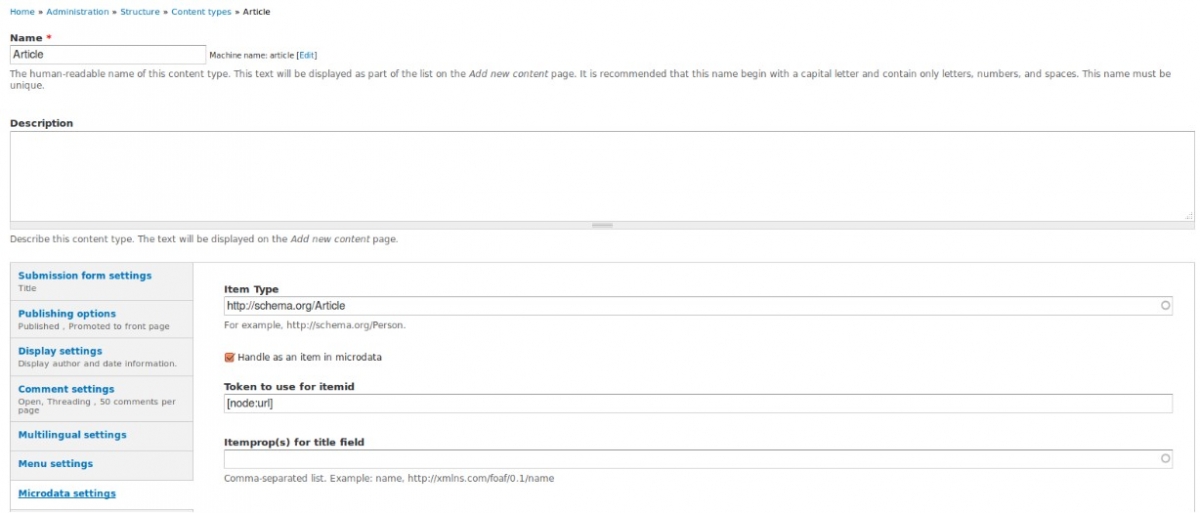
In content type settings, Manage fields tab, create 2 fields - genre and image:.

In Genre settings, we put «genre» in form for microdata.

Do the same with field Image.

It is possible to see the image of mark out in Google and Yandex. But neither Google nor Yandex guarantee the mark out reflection in the SERP.
ImageField Tokens is a good module for picture optimization. It generates alt and title attributes in node images automatically.
Image - edit - put ticks in Enable Alt field and Enable Text field, open Alt field settings and Title field settings and set all the necessary points.
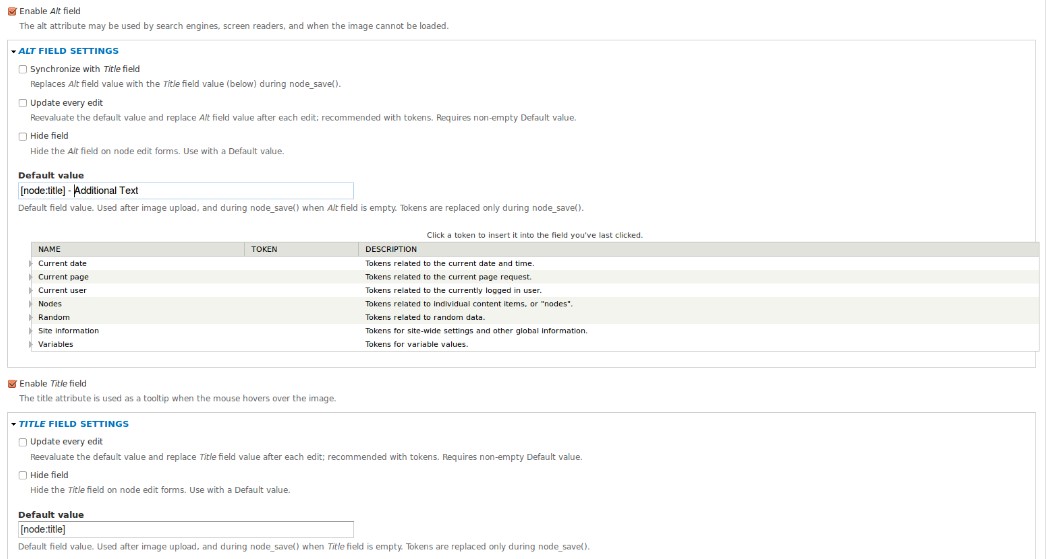
Search engines cannot identify images, only their colors and shapes. That's why these attributes (mostly alt) help to understand what it is on the image. This picture optimization can enlarge the traffic of users and searches for images.
It is recommended that alt and title attributes are not identical (but it is not obligatory). It is also recommended putting keywords into alt attribute.
These settings will ease the website optimization process, but only during its content filling.
Summing up, we described 6 additional modules which are recommended to use in web development and which can improve website SEO. Of course this is not the full list of all existing modules, its number is large, but we have picked out the best ones which will suit to any service.
Follow our blog and let SERP be with you!
